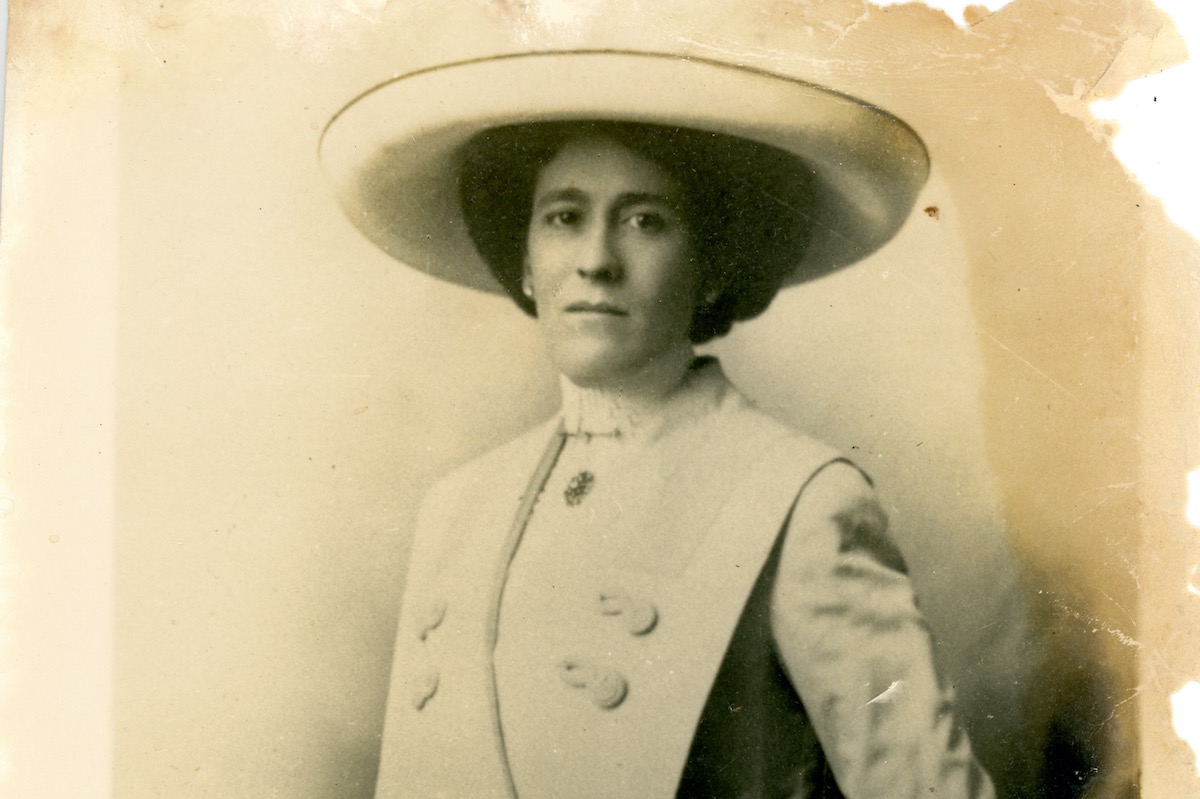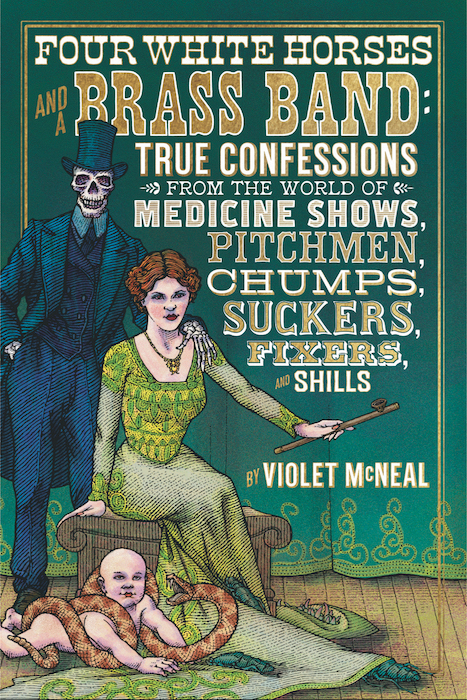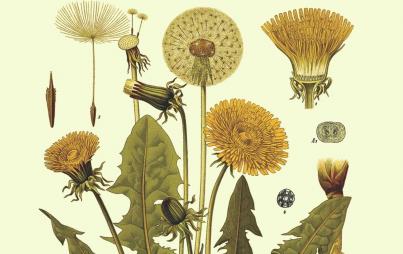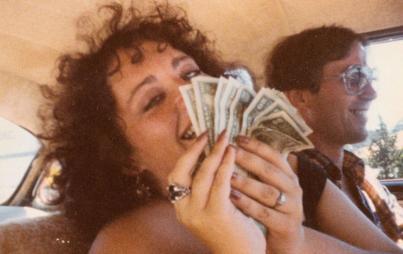
Violet McNeal (photo courtesy of Feral House)
St. Paul, Minnesota, 1904
Bedbugs decided my fate and changed the pattern of my life.
Quite a few things influenced it, of course, before the bedbugs took over. But it was rebellion against the biting of the bedbugs in a St. Paul tenement that led me finally to Will, whose brain had been tainted by the devil. The bedbugs and a two-line newspaper want ad opened the door to the fabulous world of medicine shows.
It was a swashbuckling world, peopled by a few geniuses and a great many rascals.
It was a world in which the romance of the four corners of the world could be found in the flame of the pitchman's gasoline torch.
I had never encountered a bedbug when in 1904 I took the train from our little town, bound for St. Paul. I was sixteen years old. My parents believed I intended merely to visit a friend during a Fourth of July celebration. I knew when I mounted the high iron steps of the day coach I was never going back.
In those days girls married early. Nearly all of my relatives and friends had married at sixteen; a girl of nineteen was an old maid, and a woman of thirty was an ancient crone. I firmly believed I must go to heaven a virgin if I died, and to my husband a virgin if I lived.
I was sure I was beautiful, and I knew I was virtuous. I was going to a town where there must be many rich men, so if I could just eat long enough, one of them was sure to lay his hand and fortune at my feet. In the meantime, I would get a job. There was only one that seemed to fit me. It read: "Wanted, an office girl. One with some knowledge of stenography preferred. Apply at 10 A.M."
The next morning at ten o'clock I was there. My heart sank as I looked around. About ten other girls were waiting. It seemed to me they were dressed in the height of fashion. I couldn't see where I stood a chance. I was dressed in a white lawn shirt-waist and a gray linen skirt with a ruffle around the bottom that came to my feet. My stockings had been knit by my mother, and I had on country shoes. My petticoat was made of flour sacks, and my most intimate piece of underwear had XXX's across the seat. We could boil out the "Pillsbury's Best," but the XXX's were there to stay.
Thinking of my sleepless nights with the bedbugs made me decide to wait. A little later a small dark man came in. He didn't look like any man I had ever seen before. He had black hair and hazel eyes and was smooth-shaven. He had beautiful white delicate hands. He wasn't built strong like the country men and boys I had known, but still he looked to me as if he could do more things than anyone I had ever known. He wore a blue-and-white-checkered velvet vest and gray-striped trousers and a long-tailed coat and a diamond as big as a hazelnut in a blue tie. He was the most gorgeous man I had ever met. He gave a quick look around at us all. He pointed to me and said:
"Young lady, come in here.”
I followed him into a small office.
"Are you looking for a job?"
"Yes, sir."
"Where do you live?"
I told him I had just come from Iowa and was stopping with a friend.
"The wages are five dollars a week to start," he said.
He took me into another room furnished like a parlor, except that at one side was a broad couch. There were two pillows on the couch, and in the middle of it was a lovely black wooden tray. On the tray was a copper lamp with a round globe, not very tall, that shone dimly. Beside the lamp was a black sponge on a dish, a needle which resembled a knitting needle, and some unfamiliar tools and little boxes.
I noticed, in an offhand way, that my boss's face was peculiarly pale. In my eyes he was an old man, about forty; but, oddly enough, that made no difference whatever. Something about him completely absorbed me. He was short, no more than five feet five inches tall, and weighed about a hundred and thirty-five pounds. Not only his jaw, which was the most solid and determined imaginable, but also some indefinable quality about him expressed exceptional power. His voice was low and compelling. It was a melodious, pipe-organ sort of voice. When you heard it you wanted to believe it and do what it told you to do.
"Young lady, can you be trusted?" he asked.
I assured him I could be.
"I am a famous doctor," he said, and listening to him was like being in church. "I have made a wonderful discovery which will cure consumption. Others are trying to steal this discovery, so you must never let anyone in this room or speak to them of it. I am going to let you help me manufacture the medicine."
I had never been so proud in my life. My heart swelled as if it would burst. I could hardly breathe. At that moment my blind, unreasoning adoration for Will began. I would have died to defend him or his secret. I promised him I would never disclose it.
"Thank you, my child," he said, and the touch of his voice was like the delicate stroke of fingers on my forehead.
He lay down beside the tray on the couch and told me to lie down across from him. He took up the long needle and dipped it into one of the little boxes which contained what looked like black molasses. He cooked the needle's tip over the lamp for a time, shaping the black substance into a small pill. Then he picked up a slender ivory tube about two feet long. Screwed into the tube about a third of the way from one end was what resembled a dirty dark doorknob. He stuck the pill over a little hole in the doorknob and started to inhale and blow out smoke. Then he showed me how to do it.
After the first three or four puffs I began to get dizzy. The smoke got down into my lungs. I choked and coughed. He watched me with fatherly concern. I was afraid that, asked to do the simplest thing in the world, I was failing and that he would discharge me.
"Are you all right?" he asked.
"Yes," I said. "I like it." I went into another fit of coughing. My stomach began to reel.
"Perhaps you had better stop for this time," he said.
"I don't want to stop," I said.
I took one more puff. The walls of the room began spinning. I laid the pipe down. His face looked like two faces mixed up together.
"Never mind," he said. "That's the way it is at first. You'll get used to it."
I put my head on the pillow and fought to keep my stomach from turning inside out. He smoked again for a time and then unscrewed the doorknob, picked up another tool, and scraped some dry stuff out of the bowl. He put this in a box, saying: "This is the medicine. It's worth five hundred dollars a pound, so be very careful of it."
Gradually I got over being sick when I smoked. I began to look forward to it. No matter how tired I was, I always felt rested after we had smoked a little while. Things I had been worrying about didn't seem important. I felt there was nothing in the world I couldn't do if I chose to get up off the couch and do it. I felt completely satisfied and flooded with quiet happiness.
XXX TWO YEARS LATER, 1906 XXX
In San Pedro, a medicine man came in off the road with wonderful news. He said his wife had got away from opium by using a new treatment developed in a New York hospital. I read over the literature he had on the subject, and it sounded good, so I told Will I wanted to take the cure. He looked at me, his hazel eyes blank, and I could feel he was trying to decide whether I would be able to do it or not. At last he said I could try it if I wanted to.
I went to the most reputable doctor I could find, told him I wanted to take this new treatment, and gave him the literature. He studied it and agreed to try. He told me quite honestly he had had very little firsthand experience with drug addiction.
As the first step in this particular cure, I was allowed to smoke all the opium I wanted. Then I went to a hotel room with a nurse and peeled down to the skin so she could make sure I had no dope planted on me. Will took away my clothes, and the nurse called the doctor.
At intervals the doctor dosed me with a combination of hyoscine and cocaine. Between these doses I took blue mercury and belladonna. This treatment was supposed to affect a complete cure in three days. At the end of seventy-two hours a bowel movement of a certain color was supposed to indicate that all the dope had been eliminated from the system. By the end of the second day I had broken out all over with a belladonna rash, and the mercury had not worked. My gums turned purple. As a result of the abrupt withdrawal of the opium pain began to creep through my entire body. It mounted steadily until it became unbearable agony. Half crazed, I was no longer able to choke back the screams.
The nurse telephoned Will, who sent at once for the doctor. Very much alarmed, the doctor ordered the cure discontinued and let me have some opium. He had been on the square but knew nothing about drugs.
Will sent for my clothes and had me taken back to our rooms. I was whipped.
I had believed I could quit opium any time I really wanted to. Now I knew how wrong I was.
I hated Will and despised myself. It seemed to me I had been living an entirely different life when, only a few years before, I had knelt by the bed each night to say my prayers and thank God I had such a good husband.
Eventually, all the misery had been crowded back into my memory. It was more like a nightmare than an actual experience. I was young and I couldn't help believing in the future.

*This excerpt of Four White Horses and a Brass Band—True Confessions from the World of Medicine Shows, Pitchmen, Chumps, Suckers, Fixers and Shills by Violet McNeal provided by Feral House.
About The Book:
Violet McNeal ran away from her family’s rural Iowa farm in the early 1900s and fell under the spell of conman and patent medicine “doctor” Will Archimbauld who hooked her on opium and promises of fame and fortune. Violet soon learned to become Princess Lotus Blossom and was the best pitchman, nostrum seller, and conwoman to roam the west in a torch-lit wagon. Four White Horses and a Brass Band is Violet’s story of life on the road with the medicine show and reveals the secrets of conman’s trade.
First published in 1947, the Feral House edition features an extensive afterword on the history of the patent medicine trade and evolution of the lure of miracle cures and healers. Also included are a glossary of the grifter’s cant and samples of scripts used by Violet and other infamous “doctors.”








